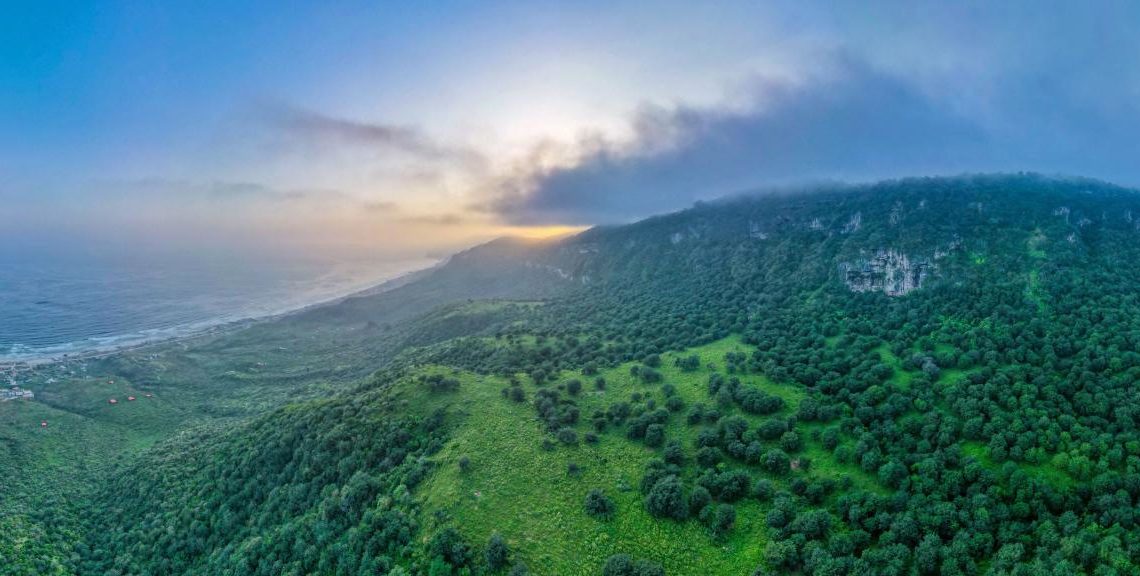Millions of years from now, Northern Africa could be home to a new ocean as tectonic plates pull apart along the East African Rift System, scientists say.
Experts have long known that portions of the continent are separating by as much as 0.3 inches a year in some places. Volcanic and geologic evidence in Ethiopia and elsewhere in Africa indicates the existing oceans may one day spill into the growing rift, severing a small portion of the continent from the greater bulk of Africa, according to experts.
“The region encompassing the Afar Depression and Red Sea and Gulf of Aden spreading centers is thought to broadly be the final transition away from continental rifting to the development of true oceanic spreading in the eastern Gulf of Aden and the Red Sea,” scientists wrote in a 2024 study.
What’s happening in Northern Africa to make a new ocean?
Scientists aren’t certain a new ocean will form, but they say the geologic implications of the plates pulling apart indicate it’s likely. A similar process created the nearby Saudi Arabian peninsula.
Scientists have used GPS and satellite mapping to track how the tectonic plates underlying Africa are separating, specifically in the region known as Afar, which includes northern Ethiopia, Djibouti and Eritrea.
“Geologists believe that, if spreading continues, the three plates that meet at the edge of the present-day African continent will separate completely, allowing the Indian Ocean to flood the area and making the easternmost corner of Africa (the Horn of Africa) a large island,” federal scientists with the U.S. Geological Survey said.
Research indicates the plates in the area are being pushed apart in part by magma rising up from deep in the Earth, creating a measurable bulge and cracks where the rocks are separating. Other factors are at play, including the amount of water underlying the area, studies show.
Estimates put the timing of the possible new ocean at somewhere between 1 million to 20 million years from now. That’s quite fast on a geological scale, and many scientists have researched the changes, which are particularly visible because they’re on land and not under one of the oceans.
More news about our planet: Sign up for USA TODAY’s Climate Point newsletter.
Remind me how plate tectonics work
The earth we stand on ‒ the ground, not the planet Earth ‒ sits atop large masses known as tectonic plates. Those plates are pulling apart, smashing together or sliding horizontally past one another, unleashing volcanos and earthquakes as a sign of the movement.
You often find geological features like rift valleys, volcanos and geysers in areas where plates are pulling apart. And you find mountains where they are coming together, like the Himalayas, which were created sometime around 40 million to 50 million years ago as the Indian and Eurasian landmasses collided. That collision is still driving action: The Himalayas are growing roughly 0.4 inches a year, according to the USGS.
In California, the San Andreas fault sits between the North American plate, which is sliding south, and the Pacific plate, which is sliding north. At some point, experts fear, California will suffer “the Big One,” a devastating earthquake that will cause widespread destruction in San Francisco, Los Angeles and other areas.
Iceland sits atop a similar rift area as Northern Africa, and it’s possible to scuba dive into a lake that has formed between the separating areas.
When was the last time we got a new ocean?
Without much fanfare ‒ or geological upheaval ‒ we last got a new ocean in 2021, when National Geographic Society scientists formally recognized the Southern Ocean encircling Antarctica as a distinct body of water. U.S. scientists had considered it a distinct ocean for decades, but it took the 2021 recognition by the society to spur more widespread acceptance.
That recognition gave it the same stature as the Atlantic, Pacific, Indian and Arctic oceans.
Experts say the Southern Ocean was formed about 30 million years ago when the landmasses of Antarctica and South America separated, creating the narrow and turbulent Drake Passage where the Atlantic and Pacific Oceans join.
A version of this story was published in February 2025.
This article originally appeared on USA TODAY: A new ocean? What’s happening in northern Africa
The post This continent is slowly splitting apart, creating a new ocean appeared first on USA TODAY.




